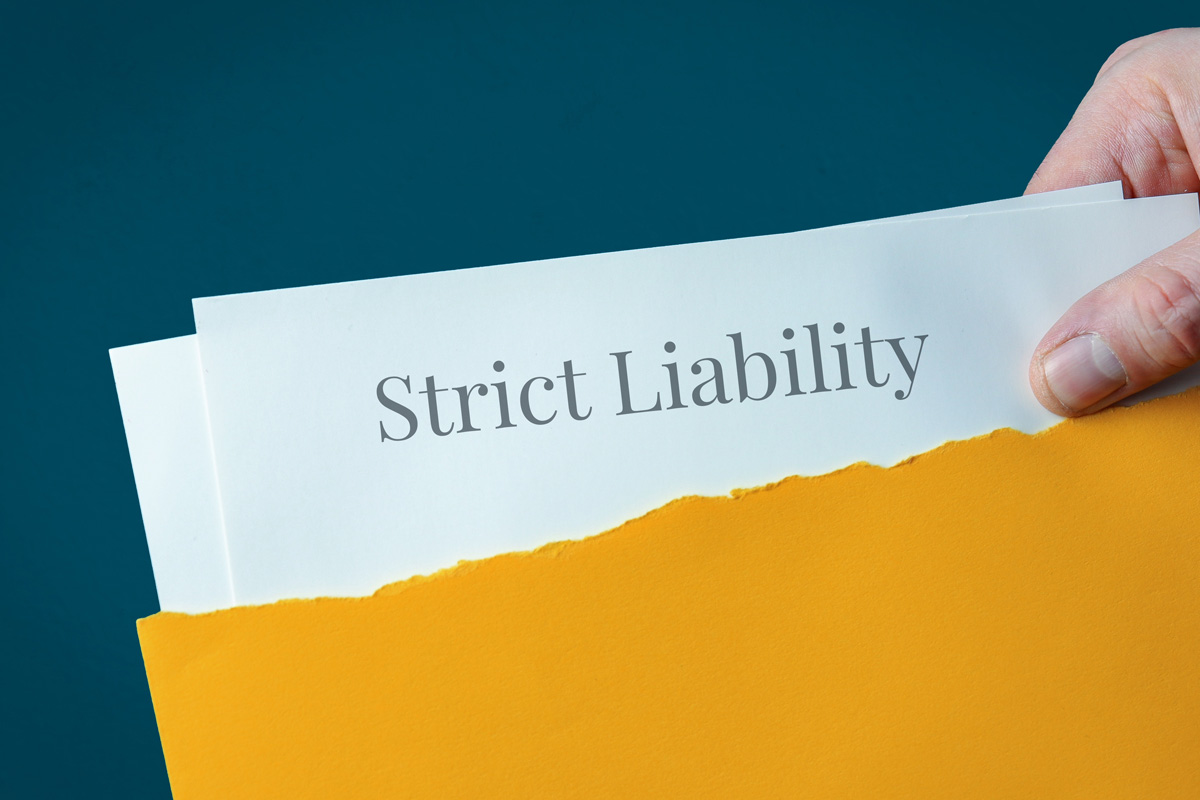 In personal injury law, liability refers to legal responsibility for causing harm or injury to another person. While most personal injury claims require proving negligence or fault, there are situations where “strict” liability applies. Understanding this concept is important for both injury victims and potential defendants. In this blog post, we will provide an easy-to-understand overview of “strict” liability in personal injury law and its implications.
In personal injury law, liability refers to legal responsibility for causing harm or injury to another person. While most personal injury claims require proving negligence or fault, there are situations where “strict” liability applies. Understanding this concept is important for both injury victims and potential defendants. In this blog post, we will provide an easy-to-understand overview of “strict” liability in personal injury law and its implications.
What is “Strict” Liability?
“Strict” liability is a legal doctrine that holds individuals or entities responsible for the harm they cause, regardless of their level of care or intention. Unlike traditional negligence claims, strict liability focuses on the act itself rather than the defendant’s behavior or state of mind.
When Does Strict Liability Apply?
Strict liability typically applies to specific types of cases where the potential risks and consequences are significant. Common scenarios where strict liability may be enforced include:
Products Liability: When a defective product causes injury or harm to a consumer, strict liability may be imposed on the manufacturer, distributor, or seller. It is not necessary to prove negligence or intent; the mere presence of a defect that caused harm is sufficient.
Abnormally Dangerous Activities: Certain inherently dangerous activities, such as blasting, handling hazardous materials, or owning dangerous animals, may be subject to strict liability. If an injury occurs as a result of engaging in these activities, the responsible party can be held strictly liable.
Ultrahazardous Activities: Ultrahazardous activities are those with an extremely high risk of harm, regardless of the precautions taken. Examples include using explosives or conducting activities near sensitive areas. Engaging in such activities can lead to strict liability if an injury occurs.
Implications of Strict Liability:
Strict liability simplifies the burden of proof for injury victims in some cases. Instead of having to demonstrate negligence or fault, they only need to establish that the harm resulted from the specific activity or product involved. This can make it easier to recover compensation for medical expenses, lost wages, pain and suffering, and other damages.
Defenses in Strict Liability Cases:
While strict liability can make it easier for injury victims to seek compensation, defendants still have certain defenses available to them. These may include:
Assumption of Risk: If the injured party voluntarily accepted and understood the risks associated with the activity, the defendant may argue that they assumed the risk and should not be held liable.
Contributory or Comparative Negligence: If the injured party’s own negligence or misconduct contributed to their injuries, the defendant may argue that their liability should be reduced or eliminated accordingly.
Product Misuse: In product liability cases, defendants may argue that the injured party misused the product or failed to follow instructions, which caused their injuries.
Consult an Experienced Personal Injury Attorney:
If you have been injured in a situation that may involve strict liability, it is crucial to consult with an experienced personal injury attorney in Birmingham, Alabama. They will assess the circumstances of your case, determine if strict liability applies, and guide you through the legal process. An attorney will help gather evidence, evaluate potential defenses, and fight for your rights to ensure you receive fair compensation for your injuries.
Understanding “strict” liability in personal injury law is important for both injury victims and potential defendants. It simplifies the burden of proof for victims in specific cases involving defective products or inherently dangerous activities. If you believe your injury may fall under strict liability, it is essential to consult with a knowledgeable personal injury attorney who can guide you through the legal process and help protect your rights.
Leave a Reply